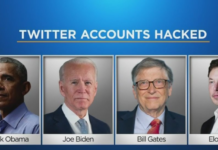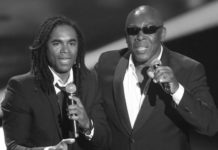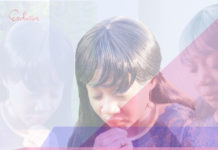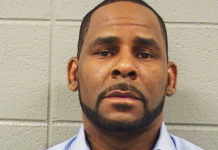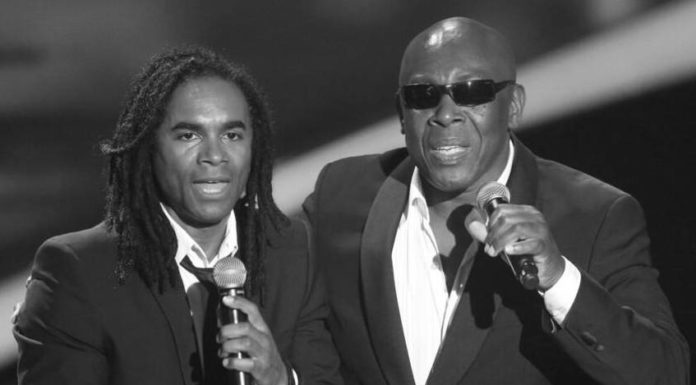Talking to Mary J. Blige (interview): ‘eight multimillion-selling albums and earned nine Grammy Awards’

|
|
She is one of the successful soul female artist who is still in the business. In an interview before beginning a tour that brings her to the Chicago Theatre on Sunday, the singer discussed her latest album, “Stronger With Each Tear” (Geffen), and her upcoming starring role in a Nina Simone movie. Q: The song “I Can See in Color” is you at your best. It was originally written for the movie “Precious” and it sure sounds like you connected with that character’s struggle. A: I did. Precious was depressed, going through a lot of strife and it made me go back to my own life when I was going through my own depression. I wasn’t able to see how beautiful the roses were or how beautiful the sunny day was. You can’t see anything. You’re walking through life in black and white. Precious was going through so much. Her mom hated her, she hated herself, she was ashamed for having a kid by her mother’s boyfriend. She got to the point where you don’t want to see anything. That’s where I got the song title. Precious says to her mom, “I see who you are now,” and she finally was able to let go of everyone holding her back. Q: How did the track come together? A: (Producer) Raphael Saadiq and I were in the studio together and we watched the film clip over and over again. He’s one of the greatest musicians in the business, able to capture those heavy soul moments. I was looking at the color of what the music should be for this movie. I though it felt like a fall color. What does the fall look like? Cloudy, gray that’s what the song should feel like. It should definitely be a broken-down old-soul moment. It should be like Sam Cooke, (she sings) “I was born by the river …” A cry for help. I wanted the song to be broke down. No gimmicks or firecrackers or bombs attached. Just straight. Who can do that? It’s easy to perform something like that. It’s raw. You could do it, Greg! You take your life experience, something that heavy and pressing, you might not even be a singer, but you purge it because that’s in all of us. Q: No way. I’d need Auto-Tune to save my sorry voice. But I know a lot of your fans were upset that your producers used Auto-Tune on the single “The One.” What’s up with that? A: Yeah, I heard some people complain about that. But I did it because I’m allowed to have fun too in my life. My life is so heavy and so serious, days and days, that people don’t even know about some of it. So can Mary J. please have fun? They (the fans) love me the way I am, they love me raw. I don’t need Auto Tune, but I was having fun with it, so why not? I can be a kid at heart. Q: How did you choose Bill Withers’ “Lean on Me” to perform at President Obama’s inaugural celebration on the steps of the Lincoln Memorial last year? A: They had two songs that were suggested for me to sing. The other was (Curtis Mayfield’s) “People Get Ready.” But that was too laid back for a moment like that. “People Get Ready” is for a funeral. “Lean on Me” is what we needed at this time, to make this new president feel we are one. My dad played that song so much (laughs). It was always playing in our house when I was growing up and I knew it by heart. Q: In terms of live performances you’ve given, where did that rank? A: Off the chart. I was so nervous. The president and his wife were sitting there looking at me. But they’re fans and children of fans, so I kept trying to keep that in mind. I probably would’ve passed out without their support. They were smiling at me. Michelle looked at me in the middle of the song as if to say, “I’m a fan, we’re all fans here. Now go ahead, go for it.” And I did. Q: You’ve been slated to star in a Nina Simone bio-flick for a number of years. Where is that project currently? A: It got pushed back, but it’s still a go. It’s not going away. It’s supposed to start shooting in January. Q: You’ve wanted to do this a long time. Why the connection to Nina Simone? A: She’s a genius. I didn’t have knowledge of her like I have now when I was first offered the part. I started listening to her music, and now I’m a huge fan. She was so blue and tormented. I can reach back into my life and pull things out that relate to her life. She was manic depressive, a drug addict. She loved herself. She was very cocky on stage. She had a different attitude from me, she had a crazy ego, but she was sad about life and how she looked. She wasn’t always kind to her fans, though I understand from her perspective how she felt. But with me and my fans, I am them. We are one and the same. That’s the main difference between me and her. I’m not sure she ever felt a part of this world. Q: You’ve also appeared on “American Idol.” Has that show been a plus or minus for music overall in the last decade? A: “American Idol” has helped people like Kelly Clarkson and Carrie Underwood, and Fantasia has a career because of it. The hurtful part of it is that artists who hope to have longevity have to go through something. You aren’t going to understand how to navigate through the business doing that show. You’re going to be in and you’re going to be out. There is no artist development, nothing that can prepare them for what’s really out there. Let me put it this way: I would rather put chicken in an oven and bake it for three or four hours rather than microwave it in nine minutes. It’s the difference between rotisserie and microwave. Q: I love that. The vocal style that “Idol” encourages doesn’t allow for much soul, either. I wonder how a young Mary J. Blige would’ve fared at an “Idol” audition? A: Good question. It’s all about hitting notes, isn’t it? They bank on pitch-perfect singing. That discourages the girl who just wants to be emotional and do what I do. People should be able to sing the way you want to be. Be who you are, not who Celine Dion is or Aretha Franklin. Q: Now that your life is more stable, is it more difficult to go to those emotional places when you record new material? A: Everybody is not happy all the time. I’m a human being. Being a human being that is an artist, there probably is more dark than happy times. We’re different. I have happiness and I’m content with who I am. But at the same time my life is full of ups and downs, I still get depressed. Sometimes we hit a trial period, we don’t even know why. But I sing and it makes me feel better. Absolutely that’s my life in there. If God didn’t give me a voice, I’d be dead. It’s the only thing that saved me. I named my tour “Music Saved My Life.” God used that instrument, my voice, to save my life. |







